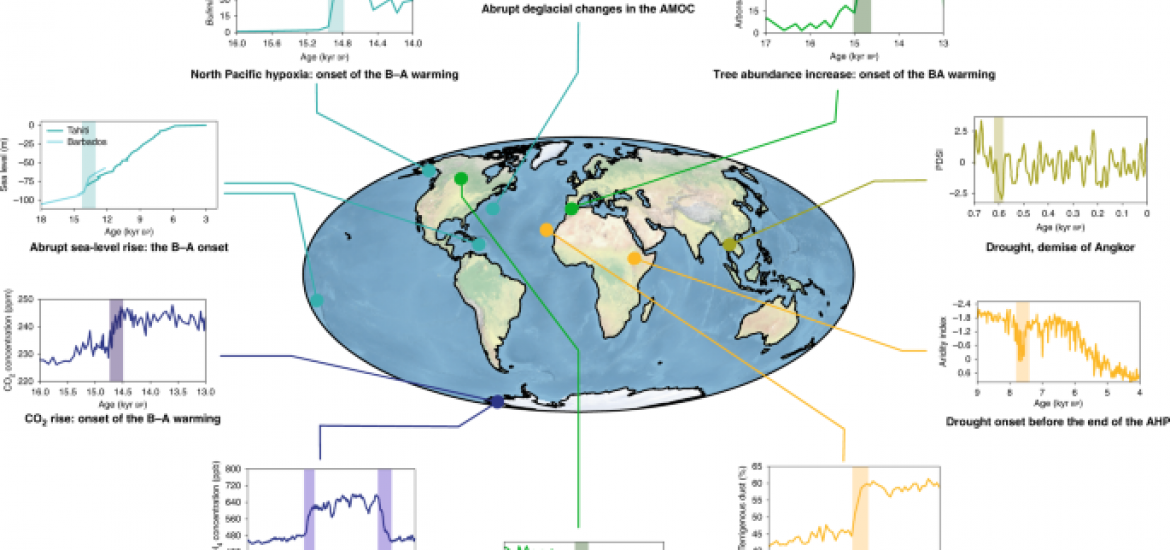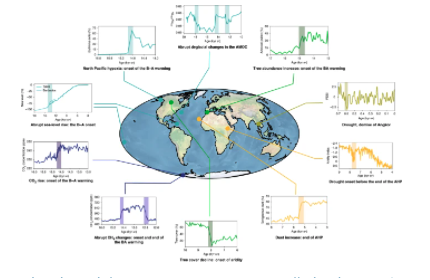- Home
- All News Overview
- Abrupt Changes & Tipping Points

Tuesday, 3 August, 2021
Several PAGES members, including our Executive Director Marie-France Loutre, released a paper today which shows that past abrupt climate changes provide evidence of cascading tipping points and "early warning signals"’ in the Earth system.
The international team of natural and social scientists, led by Victor Brovkin from the Max Planck Institute for Meteorology, Germany, examined abrupt changes over the last 30,000 years to show how tipping points, preceded by early warning signals, can help inform our response to the current climate crisis.
"For humans, it is crucial to anticipate the future – we need to know what surprises are ahead," Prof. Brovkin said.
"It sounds counterintuitive, but to foresee the future we may need to look into the past. The chance to detect abrupt changes and tipping points – when small changes lead to big impacts – increases with the length of observations.
"This is why analysis of abrupt changes and their cascades recorded in geological archives is of enormous importance."
The review, published in Nature Geoscience, focused on two major classes of instabilities in the Earth system, caused by changes in ice and oceans, and variability in rain and snowfall.
In particular, it looked into cascading impacts during the onset of Bølling-Allerød warming about 14,700 years ago, and the termination of the African humid period from 6000 to 5000 years ago that led to regional changes in ecosystems and pre-historical human societies.
This paper is an outcome of the workshop "Abrupt changes, thresholds, and tipping points in Earth history and future implications" held in Hamburg, Germany, in November 2018. The workshop was officially endorsed by PAGES and AIMES, both Global Research Projects of Future Earth.
